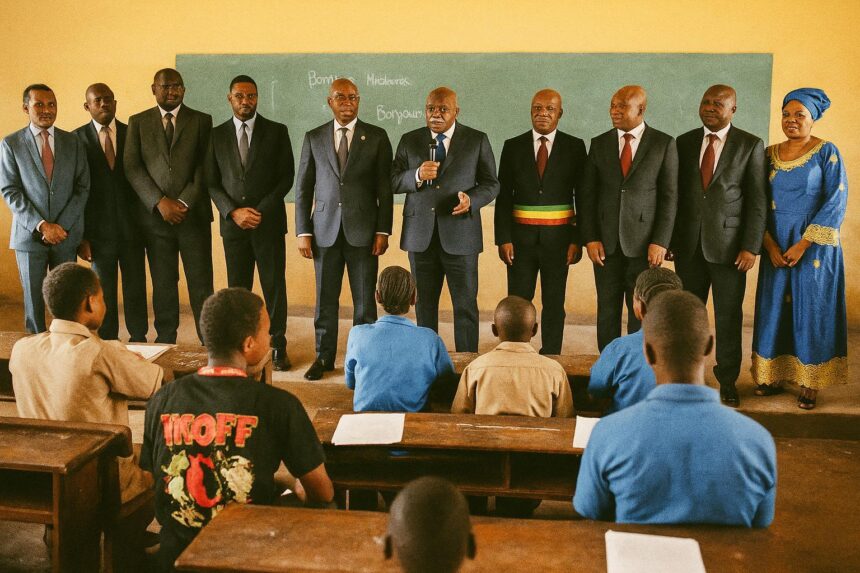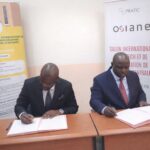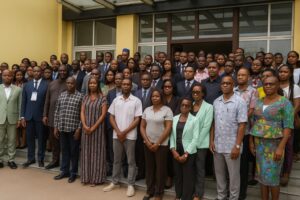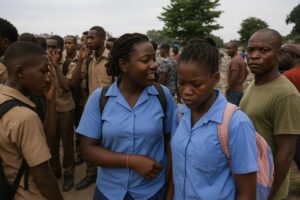Steady climb in national pass rates 2020-2025
A quiet but unmistakable academic momentum has taken root in the Republic of Congo. Official figures released on 15 July by the Ministry of Preschool, Primary, Secondary Education and Literacy show that 43 682 of the 92 995 candidates sitting the June 2025 baccalaureate earned a passing grade, pushing the national success rate to 46.97 %. This represents a full percentage point gain over 2024 and crowns a five-year sequence of uninterrupted growth: 34.76 % in 2020, 35.74 % in 2021, 39.41 % in 2022, 44.50 % in 2023, and 45.68 % last year. The trajectory, while still short of the 60 % continental average estimated by the African Union Observatory (African Union, 2024), confirms that the Congolese secondary system is recovering from the pandemic era and sharpening its competitive edge.
Policy scaffolding behind the statistical ascent
Education planners in Brazzaville argue that numbers seldom rise by coincidence. In 2021 the government authorised the recruitment of more than 5 000 new teachers, most of them science specialists, thereby lowering the student-teacher ratio from 57:1 to 44:1 according to ministry dashboards. Capital expenditure on classroom rehabilitation grew by 18 % in real terms between 2022 and 2024, while teacher-training institutes benefited from a dedicated budget line for continuous professional development (Ministry of Finance, 2024). “The children have given their best this year, and the institutions were finally in a position to match that enthusiasm,” observed Professor Dominique Oba, chair of the national jury, moments after announcing the results. International partners have amplified these domestic efforts: the World Bank’s Education Quality Enhancement Project supplied laboratory kits to 120 rural schools, and UNESCO’s Capacity Building Fund sponsored assessment workshops that refined the 2025 examination grids (UNESCO, 2024).
Regional dynamics and the paradox of urban centres
The geographic breakdown of success rates offers a tableau rich in nuance. With 79.96 % of candidates obtaining the diploma, Cuvette-Ouest leads the league table for the third consecutive year, closely followed by Likouala, the Plateaux and the Cuvette. Brazzaville and Pointe-Noire—despite boasting the lion’s share of qualified staff and connectivity—remain at the bottom rung. Education sociologists attribute the disparity to higher urban class sizes, the distraction of informal labour markets and, paradoxically, intensified competition among elite schools that often pushes middling students to the margins. By contrast, rural departments have benefited from a strong culture of community supervision, as parent associations routinely subsidise boarding facilities and meal programmes, thereby shielding pupils from the time poverty that undermines study hours in cities.
Digital dissemination and the symbolism of transparency
For the first time, the full list of successful candidates was downloadable within minutes of the jury’s proclamation, thanks to integration with the national government cloud. More than 600 000 unique connections were recorded on the ministry’s portal during the first 48 hours, an unprecedented level of traffic that its new servers—financed through a public-private partnership with Congo Telecom—absorbed without interruption. The symbolism extends beyond technology: making results instantly accessible signals an administrative culture that prizes predictability and accountability, qualities highly valued by development partners and domestic investors alike. A senior official at the Digital Development Agency called the operation “a rehearsal for wider e-governance projects slated for 2026”, suggesting that the education sector is functioning as a laboratory for broader state reform.
Human capital implications for Congo’s 2030 agenda
The immediate beneficiaries of the 2025 baccalaureate are the 43 682 new graduates, but the strategic dividend accrues to the nation’s Vision 2030 objective of lifting the skilled-labour share of the workforce to 35 %. Economists at the African Development Bank estimate that each additional percentage point in secondary completion can add 0.15 % to annual GDP growth for resource-based economies (AfDB, 2023). With petroleum revenues projected to plateau, Brazzaville’s wager on intellectual capital becomes not just socially laudable but macro-economically prudent. Interviews with scholarship officers indicate that priority fields for outgoing scholars include agritech, logistics and renewable energy—sectors aligned with the diversification agenda championed by President Denis Sassou Nguesso. In that light, the baccalaureate is less a terminal assessment than an entry pass to a development trajectory predicated on knowledge.
A cautiously optimistic road ahead
Challenges remain, notably the urban-rural digital divide and the need to further integrate competency-based curricula. Yet the 2025 results offer empirical proof that targeted investments, data-driven management and a culture of public accountability can yield measurable gains within a relatively short policy cycle. As Professor Oba reflected, “May the dynamism and fervour we witnessed this year become the new norm.” For diplomats and development partners surveying Central Africa’s education landscape, Congo-Brazzaville’s incremental successes stand as a reminder that structural transformation is often achieved less through headline-grabbing overhauls than through patient, well-sequenced reforms that allow excellence to take root classroom by classroom.




















